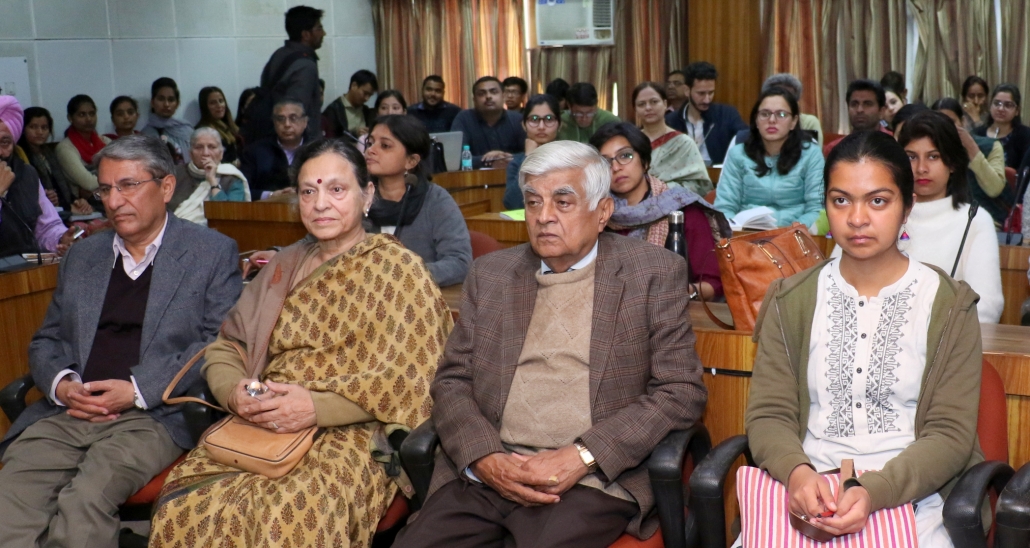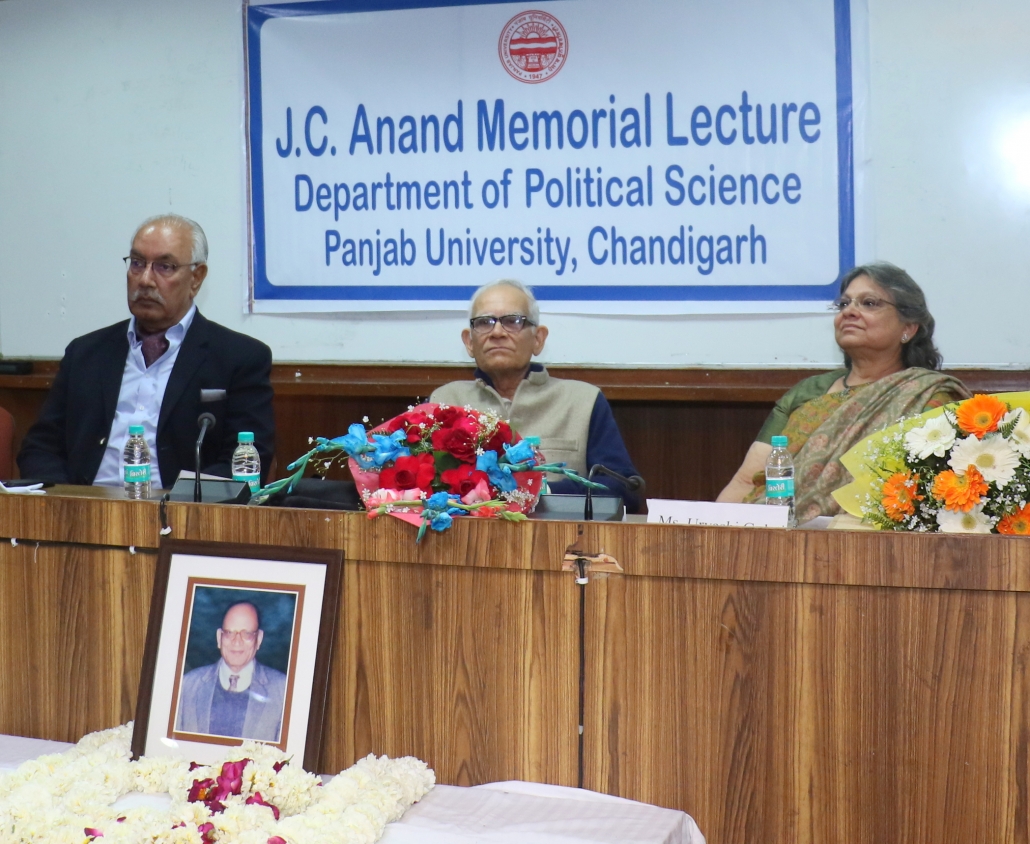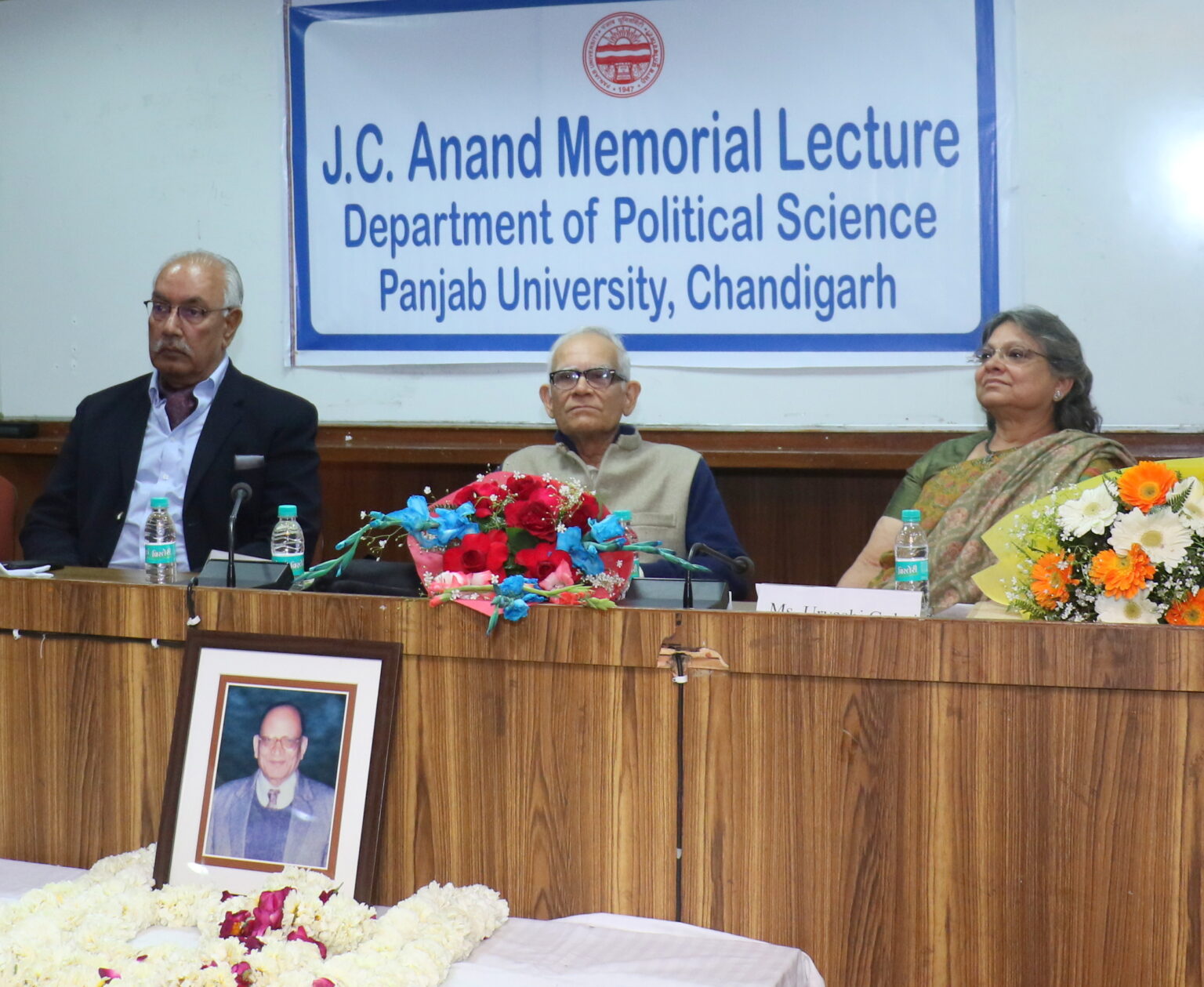
Prof. Krishan Kumar delivered the annual 3rd J.C.Anand Memorial Lecture organised by the Department of Political Science, Panjab University, here today. Professor Kumar, a Padma Shri recipient, is a renowned educationist, who has taught In Delhi University and served as the Director of NCERT.
Ms Urvashi Gulati, IAS, former Chief Information Commissioner, Meenaxi Anand Chaudhery, IAS former Chief Secretary Haryana, Keshni Anand Arora, IAS Addl Chief Secretary, Revenue, daughters of Prof. J.C. Anand, were present on the occasion. Ms. Urvashi Gulati felt honoured that iconic personalities have delivered orations for Prof. Anand. She informed that this is the third oration where a noted educationist and scholar is delivering a memorial lecture. Remembering her father, she shared that he always stood for women empowerment and he empowered all his three daughters who came in Civil Services.

Prof. Bhupinder Brar, Prof. Emeritus in Panjab University chaired the session.
Professor Kumar while speaking on the ‘Public Significance of Education’, started his lecture by distinguishing the question of public significance from that of private significance where education is associated with social mobility and participation in the modern economy. He also noted that the issue in a South Asian context also requires reflection on the nature of the public sphere including who it includes and its regional variations given the legacy of colonialism. One of the important functions of the education system in India has been in selection of the elites, those who become the office-bearers of the state apparatus, and this is a continuing legacy of the colonial state in Independent India. That is why the education system in India is focussed on the examination system through which the selection process takes place with the idea of meritocracy. But this is not the main public role of education. Drawing from Ambedkar’s critique of the caste system which does not allow for different knowledges to have a common space,
Professor Kumar argued that the specific public role of education is that it creates predispositions i.e. it socialises us into specific ways of thinking and approaching the world. But this process of socialisation, where education is part of the secondary institution of socialisation with the family being the primary one, also creates the possibility of change in society. Professor Kumar’s lecture was a scintillating account of the philosophy and practices of education and was listened to in rapt attention by a large audience.
Among those who were present on the occasion included Sh. Alok Nigam, IAS, Additional Chief Secretary, Haryana, Prof Ranbir Chaudhary, Centre for Social Sciences, Delhi, Ms. Neerja Sekhar, Addl Chief Secretary, Haryana, Ms. Navraj Sindhu, Addl Chief Secretary Haryana and many other bureaucrats from Government of Haryana, PU Fellows, faculty, researchers and students




